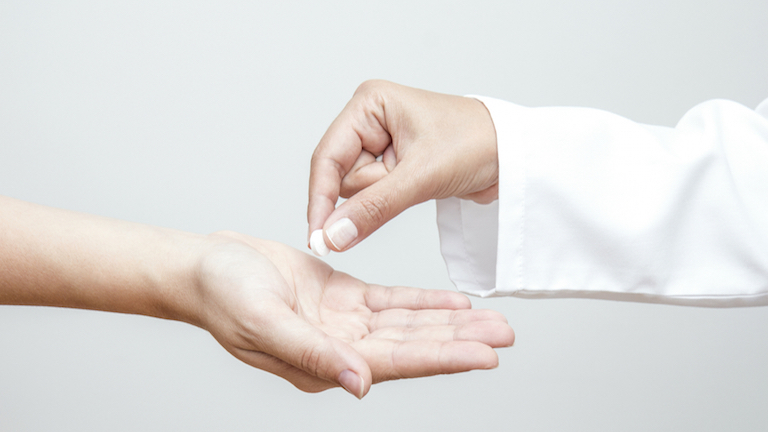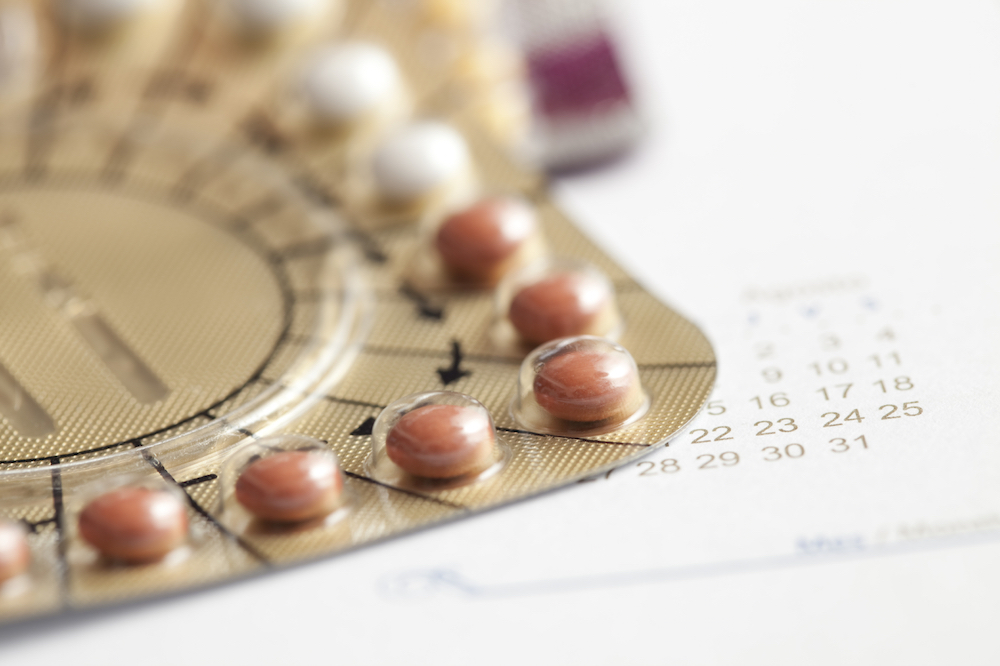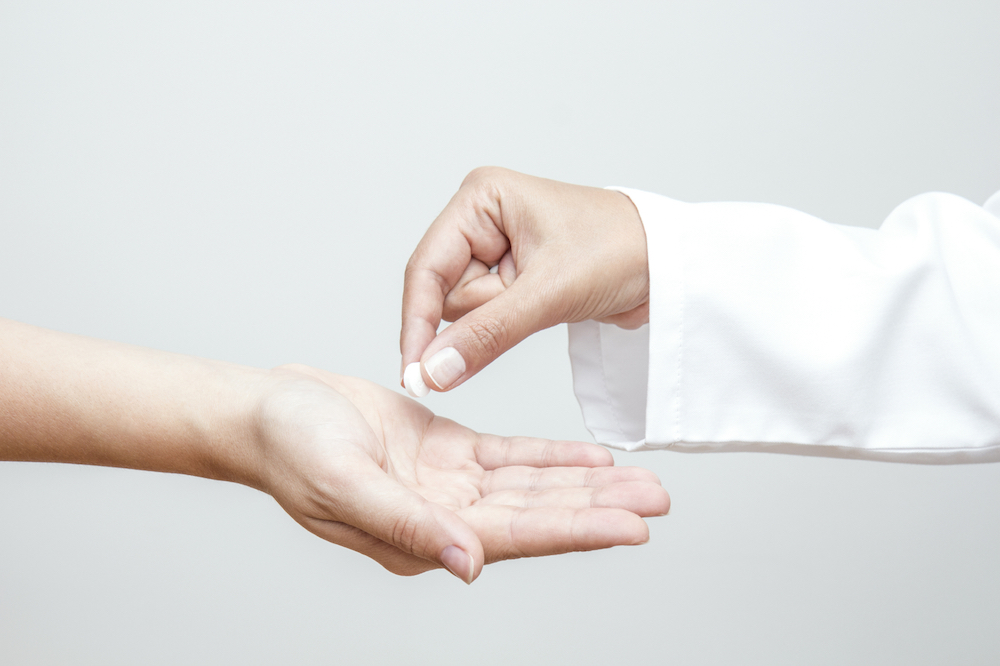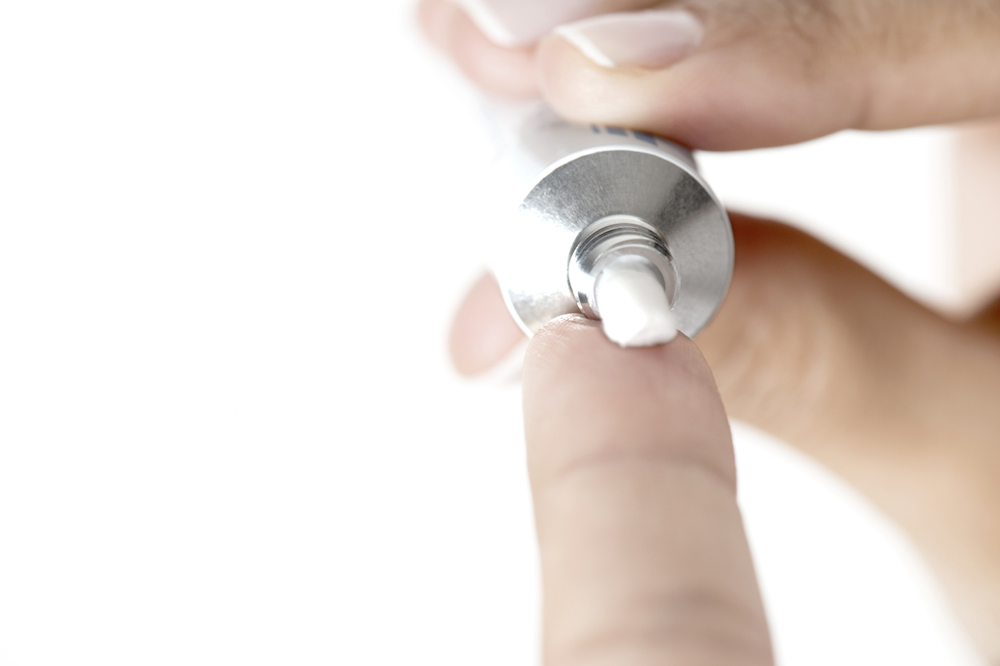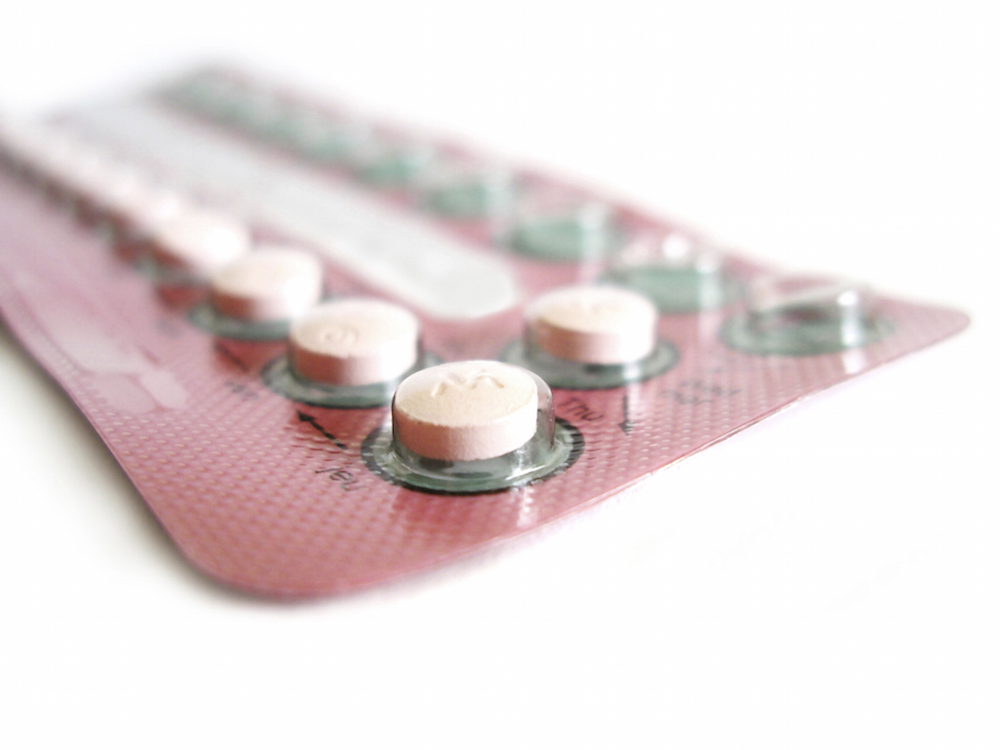Hormone replacement therapy (HRT): what are the side effects, risks and benefits and is natural hormone replacement better? Anna Magee investigates by talking to Britain’s leading specialists
It wasn’t until I read Allison Pearson’s account of her own menopausal brain fog, anxiety, low mood, overactive bladder, zero libido and extreme irritability that I became utterly, witlessly terrified by the catalogue of vague symptoms I was likely to face in the next 12 months.

As a health journalist, I am paid to decipher medical information for public consumption. I have deadlines, a husband, a life. I need a working brain and bladder, sex!
For Pearson, it was hormone replacement therapy (HRT) that made her symptoms virtually disappear. But like most women, I have heard about the pitfalls associated with it such as increased cancer and heart disease risk. They have come from studies done on huge numbers of women.
Have they all been wrong? Or would I indeed be risking my future health to go on HRT? I set out to find out.
What the experts say:
Each year 1.5 million women in the UK experience menopausal symptoms, but only one in ten are prescribed HRT despite it being the most effective treatment
In November last year, the National Institute of Clinical Excellence (NICE – the body that recommends prescribing and treatment in the UK) issued landmark first guidelines on menopause encouraging doctors to offer their patients HRT, while making clear the risks. Each year 1.5 million women in the UK experience menopausal symptoms, but only one in ten are prescribed HRT despite it being the most effective treatment, it declared. But in the last decade doctors have been reluctant to offer it to women because of its perceived risks.
Indeed, according to figures from the Health and Social Care Information Centre (HSCIC) prescribing rates for HRT have plummeted in the last decade and while in 2000, there were 6,177,468 prescriptions for it, by 2014 that figured had dropped staggeringly to 2,260,917.
During the 80s and 90s HRT was considered something of a wonder pill that women would take at the first hint of a hot flash and then continue indefinitely. But little was known about its risks.
But in 2002 a large scale study on over 16,000 women in the US called the Women’s Health Initiative (WHI), designed to prove that HRT protected women from heart attacks. The study had to be stopped early when it became clear it actually increased risk of heart disease and doubled deaths from breast cancer. Not long after that, the Million Women Study (MWS) conducted by Oxford University researchers in the UK also found HRT increased risk of breast cancer. Moreover, last year a major review in the Lancet journal of more than 50 studies linked HRT to a raised risk of ovarian cancer.
The WHI study recruited women over 60 who were overweight, diabetic and came from poor backgrounds […] and yet it’s in all the undergraduate text books so it’s what GPs learn when they study. It will take a generation to get rid of this thinking
But for a growing group of experts, these studies overplayed the dangers. ‘The WHI was an awful study in that it recruited women over 60 who were overweight, diabetic and came from poor backgrounds – all of which put them at higher risk to begin with, especially of heart disease,’ says Professor John Studd, consultant gynaecologist and co-chair if the British Menopause Society. ‘It gave the women the wrong dose of hormones in the wrong form and yet it’s in all the undergraduate text books so it’s what GPs learn when they study and it will take a generation to get rid of this thinking. HRT is absolutely safe.’
‘NICE has gone through in detail the benefits and the risks and looked at all the data to try and allay some of the confusion both women and their GPs feel around this area,’ says Dr Heather Currie, chair of the British Menopause Society and consultant obstetrician and gynaecologist at Drumfries and Galloway Royal Infirmary in Scotland. Likewise, Ashley Grossman, professor of endocrinology at Oxford University says that while the increased risks are there, they are relative risks and not absolute risks. ‘In general, we tend to avoid prescribing HRT to people with first degree relatives who had breast cancer, such as mothers and sisters, but the overall risks to women who are not considered at high risk of things such as breast cancer is relatively small’.
Still, drill down into the science of these studies and it’s hard to believe that HRT is ‘absolutely safe’.
For scientists such as Klim Macpherson, professor of epidemiology at Oxford University who worked on the MWS, the NICE guidelines mean women will be misled into thinking HRT is completely safe when the evidence shows otherwise. Indeed, when deciding – with your GP, of course – whether or not to take HRT, there are factors to consider.
Women who take combined HRT for five years have double the risk of breast cancer compared to non-users and if they use HRT for over ten years, their risk is even higher. But in real numbers, the risk is still relatively small
The first is the length of time you spend on it, as most of the risks in the studies seem to be in women taking the drugs for five years or more. The MWS study results suggested that women who take combined HRT for five years have double the risk of breast cancer compared to non-users, and if they use HRT for over ten years, their risk is even higher, says Cancer Research UK. But in real numbers, the risk is still relatively small. If 1000 women start taking HRT at age 50 for five years, two more will get breast cancer, one more will get ovarian cancer, and avoiding HRT could prevent 1700 cancer cases a year.
The 2015 Lancet research looked at 52 previous studies on ovarian cancer risk and HRT – some unpublished – and found that one woman in every 1000 over 50 who uses HRT for five years will get ovarian cancer and one in 1700 will die from it (but risk goes back down over time once she stops taking it).
Conversely, the WHI found that taking HRT reduces the risk of osteoporotic fractures and also of developing bowel cancer. ‘Few of us would recommend you go on HRT long-term, that is, for longer than five years,’ says Professor Grossman. ‘Having said that, I have patients in their 60s and they don’t want to stop and frankly if they know the possible risks and they are happy to take it, I would say continue it.’
Professor Macpherson suggests trying to stop every now and again to see if symptoms come back. ‘I’ve advised many women to take it for a year and then stop and they may discover they don’t have symptoms anymore, though it’s very variable from woman to woman how long she will have symptoms.’ Dr Helen Stokes Lampard, a GP specialising in women’s health and spokesperson for the Royal College of GPs believes in prescribing ‘the lowest dose of HRT for the shortest time,’ and always advises women to talk to their doctor about the risks once they have been on the drugs for about a two years and then ‘taper’ their dose when coming off. ‘Your body will miss the oestrogen so make sure you do it gradually, ideally in the winter months when its cooler, to let nature help you,’ she says.
Right up to the age of 60, and for many women even after age 60 – the benefits [of HRT] outweigh the risks
Your age is also a factor. ‘It’s perfectly fine to start HRT for the first time after your periods stop, but the key is not to wait until more than ten years after menopause before thinking about starting HRT,’ says Dr Currie. ‘Right up to the age of 60, regardless of when HRT was started – and for many women even after age 60 – the benefits outweigh the risks.’ According to the NICE guidelines, HRT does not increase the risk of developing heart disease if you take it before 60, and the evidence is mixed when it comes to HRT and the risk of heart disease. While the WHI found an increased risk of heart disease, a subsequent 2012 study in the British Medical Journal found that taking HRT cut the risk of dying after a heart attack by half, as estrogen can provide a protective effect against heart disease in women.
So what else might it benefit?
‘HRT is the one thing that can benefit almost every element of symptoms you get from the menopause because it’s replacing the oestrogen, the one thing your body is missing and causing these symptoms,’ says Dr Stokes Lampard. HRT is prescribed in combinations of oestrogen and progesterone or oestrogen only (for women who have had hysterectomies) and is administered as pills, patches and creams.
‘The strongest evidence is for hot flashes and vaginal dryness, but we also know that psychological symptoms such as tiredness, brain fog and irritability can be helped by HRT as well. Women who take the HRT for the flushes often come back and say to me ‘thank you so much I feel happier, I feel more positive, more confident, I’m sleeping again.’
HRT is the one thing that can benefit almost every element of symptoms you get from the menopause
As for side effects, she explains the most common are headaches and nausea and sometimes weight gain – and where this occurs, it’s possible to change to another type of HRT, there are countless types and forms available. Professor Grossman says women also anecdotally report their breasts are firmer and their skin more radiant, as oestrogen has a plumping effect on skin.
What should you watch out for?
Dr Stokes-Lampard suggests considering your other risk factors and then deciding. ‘If you’re grossly overweight with a body mass index over 30, if you smoke, if you have a strong family history of breast or ovarian cancer, tell your GP.’ It’s these factors that may compound your risk. Other risks include developing a deep vein thrombosis (DVT) she explains, but these are ‘very, very small’.
If you’re grossly overweight with a body mass index over 30, if you smoke, if you have a strong family history of breast or ovarian cancer, tell your GP
You may have heard of bioidentical HRT (BHRT) as a natural alternative to the HRT your doctor can prescribe because it mimics the hormones your body produces naturally. Although BHRT is often prescribed by private doctors, what many people don’t know is that many of the HRT forms your GP can prescribe are also from natural sources and identical to the hormones produced by your body.
’17 beta estradiol [some call it oestradiol alone] is what a lot of people call bioidentical and it’s actually the oestrogen that’s in about nine commonly prescribed HRTs in the UK,’ says Dr Helen Simpson, consultant endocrinologist at Cambridge University Hospital. ‘The advantage is that the type you get from your doctor is regulated by the Medicines and Healthcare Regulatory Authority [MHRA] and can also save you a lot of money as they’re available on the NHS.’
BHRT is not regulated by the MHRA and made at compounding pharmacies who use unlicensed hormones derived from products such as soya and yam that they receive as pharmaceutical-grade raw materials
BHRT is on the other hand not regulated by the MHRA and made at compounding pharmacies who use unlicensed hormones derived from products such as soya and yam that they receive as pharmaceutical-grade raw materials to create a bespoke dosage requested by the doctor. I spoke to one such pharmacy who confirmed the practice isn’t regulated by the MHRA, but all the raw material hormones they source are from suppliers around the world who adhere to Good Manufacturing Practice (GMP).
‘BHRT can be derived in cream gel, lozenge and capsule format and we usually use a combination of oestrogen, testosterone and progesterone, depending on what the patient needs. It’s about prescribing the lowest dose to give the maximum benefit with the lowest risk of side effects,’ says Dr Terry Loong, a private Harley Street doctor specialising in BHRT who prescribed Tina Dulson’s BHRT.
As for me:
When my menopause symptoms start to hit, will be I be opting for HRT? There’s no simple answer but with no family history of breast or ovarian cancer and no heart disease risk factors, I think so.
I’ve learned HRT is like hormonal contraception in that there are countless delivery methods and dosages and that doctors are usually quite happy with patients trying different ones until we find what works for us
But I want the lowest dose possible in a form that is identical to the hormones naturally occurring in my body – that’s oestradiol, the type that is licensed, approved by the MHRA and can be prescribed by my doctor on the NHS. I also want the chance to review and change my dosage and type after 12 weeks in case of any side effects.
I’ve learned HRT is like hormonal contraception in that there are countless delivery methods and dosages and that doctors are usually quite happy with patients trying different ones until we find what works for us. If your doctor is not knowledgable in the area, Dr Stoke-Lampard says most surgeries have at least one doctor that specialises in menopause management, so ask to see them.
MORE: WHAT REALLY HAPPENS TO YOUR BODY DURING PREGNANCY
ENDOMETRIOSIS: A DOCTOR’S GUIDE
4 COMMON PMS SYMPTOMS & HOW TO FIX THEM
Like this article? Sign up to our newsletter to get more articles like this delivered straight to your inbox.



